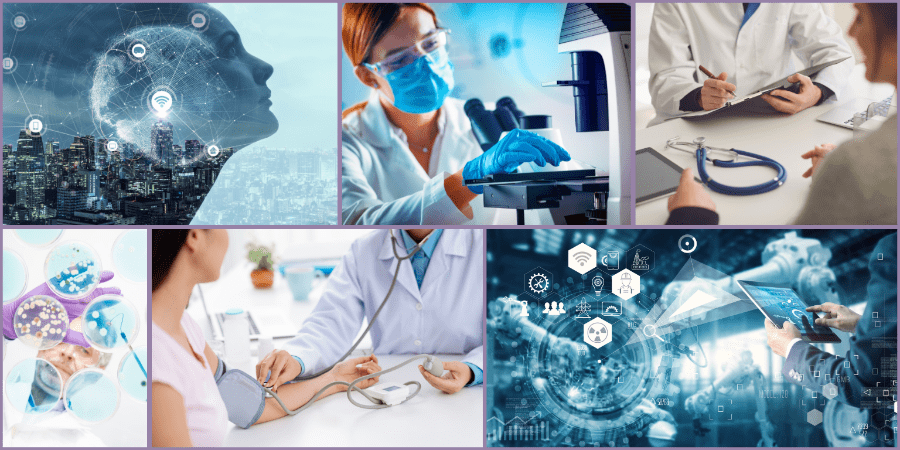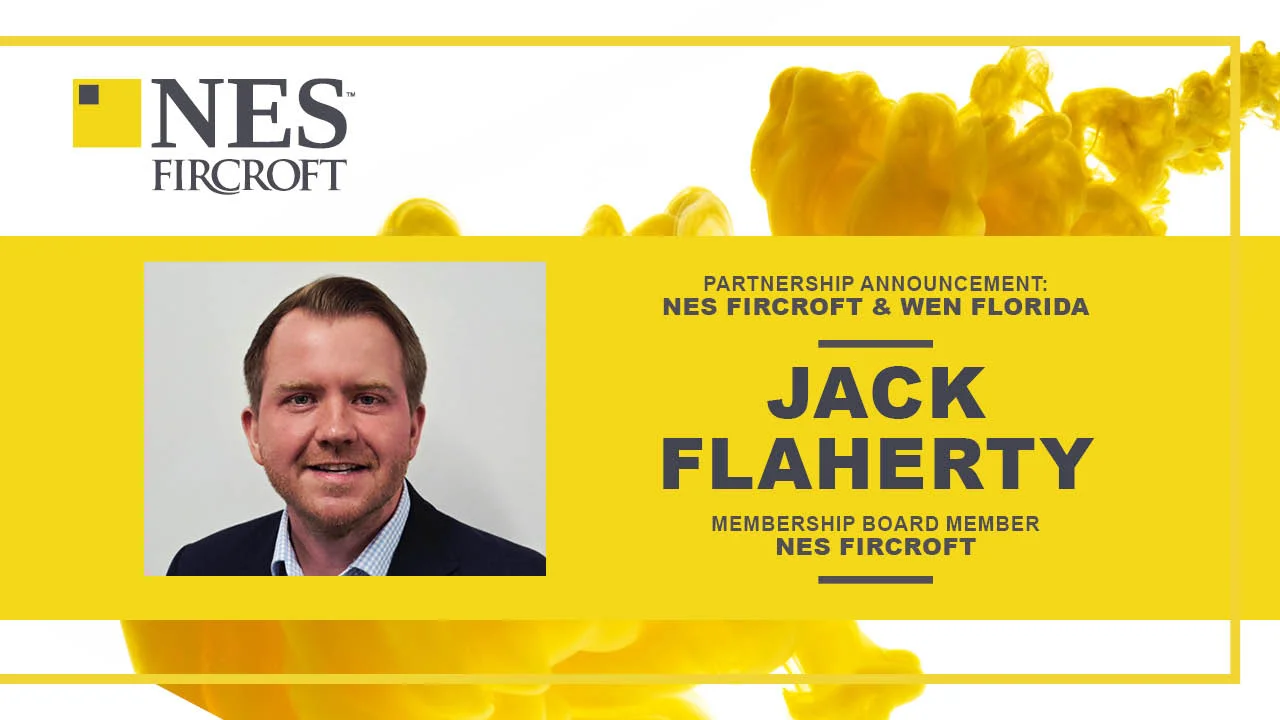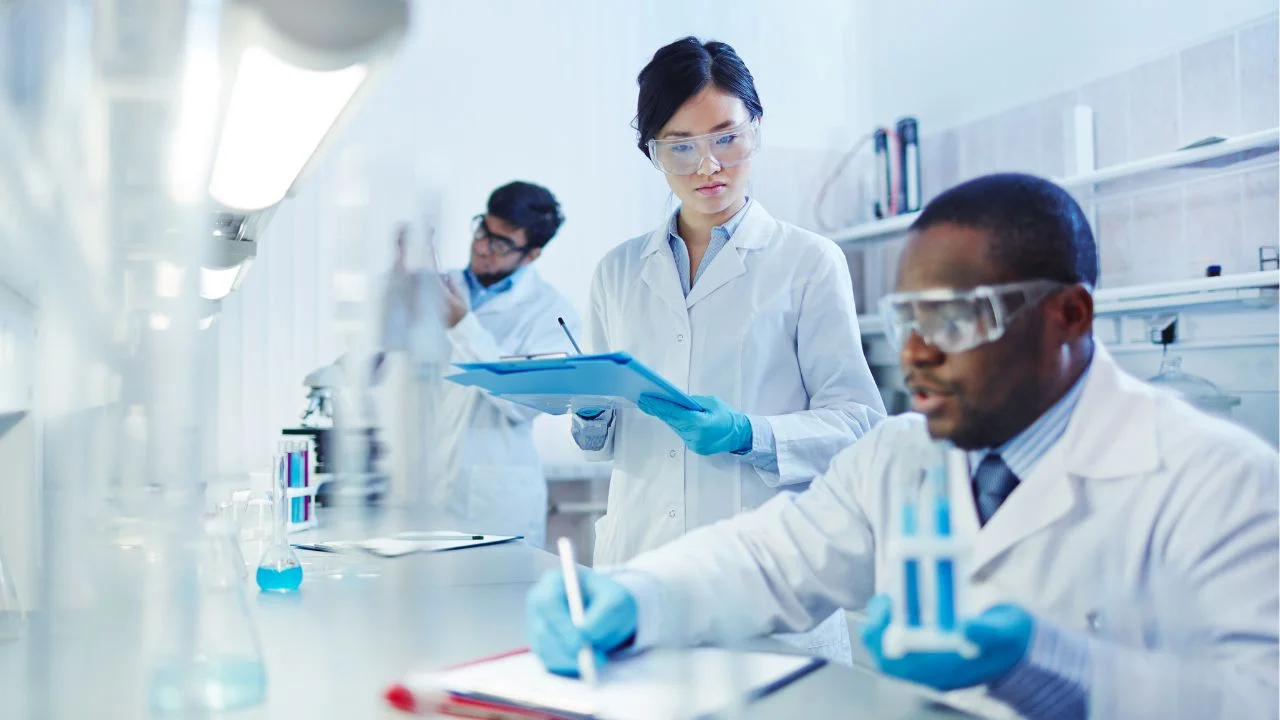How Is AI Pushing The Life Science Industry Forward?
05 Jan, 20224:07Artificial Intelligence (AI) has a huge role to play within Life Sciences. With such un...

Artificial Intelligence (AI) has a huge role to play within Life Sciences. With such unimaginable amounts of data generated every single day through Research and Development (R&D), AI can help analyse and draw relevant information from it a lot more quickly than if humans were to do so.
Artificial Intelligence makes use of various complex tools and networks to mimic human intelligence. The software and systems involved in AI can interpret data and learn from it to make independent decisions to reach a given goal.
AI can help the Life Science industry wade through the jungle of data, enabling humans to discover and develop new drugs, conduct more efficient clinical trials, ensure treatment is suited to the individual patient and diagnose diseases more accurately - the list is endless.
Emerging in the 1970s, Artificial Intelligence is still a relatively new concept within the field of Life Sciences and considering all that it has already helped to achieve, one can only imagine how much more we have yet to discover. So, here are just a few of the many ways in which AI is being used within Life Sciences to push the boundaries of the industry ever further.
AI in Drug Discovery and Development: Millions of molecules and potential drugs yet to be discovered
At present, about 90% of the drugs on the market are chemically synthesised small molecules. These present many advantages, such as simpler manufacturing processes, easier administration routes, longer shelf lives, higher stability, and lower specificity. This means these drugs are effective and safe for many people. However, because they have a lower specificity, small drug molecules also involve the potential for more side effects, meaning they are less likely to pass clinical trials successfully.
Technological advancements have meant that researchers have been able to discover larger, more complex biological therapeutics, referred to as biologics. These are much more specific to their target and there has been much excitement over their potential. In 2018, 17 of the 59 drugs approved by the Food and Drug Administration (FDA) were biologics.
And of course, AI can play a huge role in the further discovery and development of such molecules and other drugs. The number of different molecules that exist around us is immense - roughly 10 to the power of 60 (10^60). With the limited number of advanced technologies we have at present, the screening and analysis of even a small portion of these molecules is time-consuming and extremely expensive.
As stated in a Deloitte article entitled ‘Intelligent Drug Discovery Powered By AI’:
Of the 10,000 molecules initially screened, only 10 make it to clinical trials. Moreover, the chance of success for a compound entering phase I trials, the first phase of clinical testing, is slightly under 10 per cent and has not increased in a decade.
This is something AI can help researchers with. Artificial Intelligence-based tools can scan through and cross-reference vast and complex datasets a lot faster and more accurately than humans can. Out of this emerges a much more precise list of molecules and potential drug candidates which can then be analysed by scientists, saving them a lot of time and effort.
Once potential drugs have been identified, AI is then able to do things such as:
Predict 3D structures of target proteins
Predict drug-protein interactions
Help determine drug activity
Design brand new drugs
AI in Clinical Trials: designing optimal trials
Big Data and Artificial Intelligence complement each other as AI can help analyse and synthesise huge datasets. Within the Clinical Trials field, AI and Machine Learning (ML) have the potential to significantly reduce costs and timescales, whilst producing more reliable results and insights.
Artificial Intelligence is now capable of estimating optimal sample sizes and implementing trials remotely on participants located in different places. By using advanced predictive analytics on a wide range of available data, AI can also identify suitable candidates for clinical trials for target populations much faster than before.
Recruitment of candidates for trials is often a long and arduous process that involves a lot of manual screening. The screening for candidates mainly entails analysis of textual data. This means Natural Language Processing (NLP) models, combined with ML algorithms, Deep Learning (DL), and Optical Character Recognition (OCR), can dramatically accelerate the recruitment process. These technologies can:
Sort through medical records to identify patients that fit the clinical trial description
Learn from past trials and candidates to inform the recruitment of future candidates
Through chatbots, dynamically create qualifying questions to ascertain whether a candidate is suitable for a trial (although this is still in its infancy)
All of this combines so that scientists can gather more accurate and relevant data from their trials. Thanks to AI algorithms and effective digital infrastructure, the large amount of data collected from these trials can then be cleaned, collected, coded, stored, and managed effectively.
AI and personalised healthcare
There are currently vast amounts of research being done into how machine learning and predictive analytics can help tailor treatment to an individual’s unique health history. Such research could help ensure that diagnosis and treatment are optimised.
At present, this technology is used to support doctors in identifying what a patient might be suffering from, based on their genetics and symptoms. If a healthcare professional can accurately diagnose a patient, they can make a more informed decision when it comes to treatment or even prevention.
Much attention has also been paid to how wearable devices, biosensors, and health-measuring mobile apps can provide additional data on a person’s health. This vast amount of extra data, coupled with existing medical records and history, can be analysed and ordered using AI.
Artificial Intelligence can identify trends, patterns, and anomalies, drawing conclusions from these to give both doctors and individuals a more well-rounded understanding of the person’s health, as well as how to take care of it.
Not only that but using such devices can also dramatically reduce costs as they limit the need for expensive and lengthy testing. It also means that any potential health issues can be identified a lot more quickly, possibly saving lives.
NES Fircroft and the Life Science industry
NES Fircroft has been supporting the Life Science market for over 20 years, sourcing personnel for engineering, scientific and commercial roles across the market. We recruit highly experienced professionals to the biotechnology, pharmaceutical, diagnostics, and medical devices industries.
We can provide both permanent and contract candidates to the Life Science industry across Quality, Clinical, Regulatory/Compliance, and Engineering disciplines.
If you’re looking for skilled personnel, get in touch with our dedicated Life Science Recruitment teams to find out how we can support you.
Are you looking for a new job? Browse our Life Science vacancies today.




